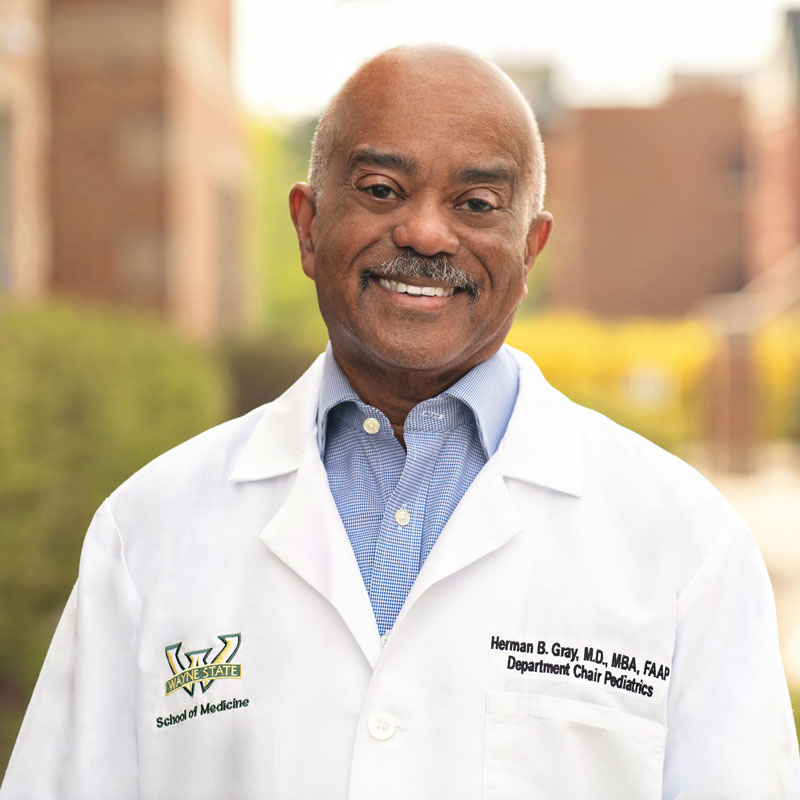Crain’s Detroit Business published an opinion article about inequity in youth arts co-written by Wayne State University School of Medicine Department of Pediatrics Chair Herman Gray, M.D., M.B.A.

“There’s growing medical literature that suggests that participating in the arts can speed up recovery,” he said. “It may help to reduce complications of illnesses.”
His co-authors include Bob Riney, president and chief executive officer of Henry Ford Health, and Archie Drake, chief executive officer of Children’s Hospital of Michigan.
In the article, the trio advocate that a vital aspect of care to improve health outcomes for children is frequently overlooked: the role of arts in promoting healing and well-being.
While access to art in public schools has declined over the years, a 2019 World Health Organization report found extensive evidence that the arts, including dance, music and visual art, can impact both mental and physical health, the op-ed states, including health, education, social-emotional learning, inclusive belonging, creativity and workforce readiness —making them essential for healthy youth development.
“We believe lots of things that, given access to the arts, can be helped,” Dr. Gray said. “(The arts) can be used particularly in patient-hospital settings. It can be a form of distraction. Sit with them, prepare them for procedure. It can be a valuable tool in a health care setting. And it can just be fun.”
The importance of creative arts, especially music, is a personal passion for Dr. Gray, who learned piano at age 7 and played clarinet throughout school, including in his undergraduate college years, and his first two years of medical school. He is on the Detroit Symphony Orchestra Board and was president and chief executive officer of Children’s Hospital of Michigan in the early 2000s when he founded an arts program there that included having DSO musicians play in patient rooms. He also worked with Wayne State University Art Curator Grace Serra to have colorful art installed in the hospital, most of which still hangs today. He also helped organize photography contests, in which young patients were given disposable cameras to capture their lives in the hospital, with stunning results, he said.
“Kids that are chronically ill, in particular, they’ve got a lot of time to reflect on their lives,” he said.
Dr. Gray and his co-authors used the article to announce a new initiative to combat what they believe is a lack of full access to these benefits for many Detroit youth, making it not only inequitable, but also a public health issue.
“With the need for an entity to bring people together to focus on this issue, we are enthusiastic about the new initiative, Detroit Excellence in Youth Arts,” they wrote. “DEYA, with funding from the National Endowment for the Arts, will launch the Detroit Partnership for Arts Education, a cross-sector committee including representatives from corporate, K-12 schools, higher education, nonprofit, government, community development and youth development sectors.”